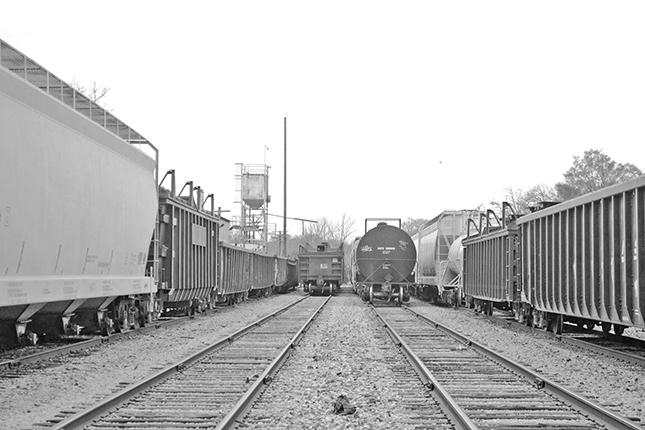By Jacob Prall
From a train, the view of Mosiers, Oregon, would seem like an instant. The small town is nestled into the forests of oak and fir that make up the Columbia River Gorge. It would blend in — Mosiers is made from the lumber from the wood it is surrounded by. On June 3, a catastrophe arrived by train that Mosiers was lucky to survive.
A train carrying 96 tanker cars of Bakken crude oil derailed. The Washington Post later reported on the cause: a loose bolt. The loose bolt sent flames 50 feet high, blackening the sky in a slick smoke as 42,000 gallons of crude oil were spilled or vaporized.
June 3 was a breezeless day in the gorge, a lucky oddity that prevented the fire from spreading too quickly. Still, the damage to the surrounding environment will take time to reverse. The incident and ensuing backlash highlight two crucial issues that have emerged since the exploitation of the Bakken oil fields began.
Is the transfer of Bakken product worth the potential environmental harm, and is the United States’ crumbling infrastructure equipped to deal with the incoming oil?
The transportation of highly inflammable crude oil over vast distances is an inherently risky business. Massive spills are a regular occurrence for oil rigs in international waters. As the transport of oil through the United States increases, so, too, will the frequency of spills and explosions. The likelihood of disaster is only increased by the well-documented deplorable state of U.S. infrastructure. The structural integrity of bridges, roads, railroads, and irrigation are all of major concern in our nation. The United States simply does not have a dependable system of transportation for such volatile chemicals in the proposed quantities and over the planned distances. When these oil-related disasters occur, they scar our environment and endanger lives and property. This is not an Oregon phenomenon but a national one, and it is coming to a head in Iowa.
In 2014, a pipeline was proposed that would cut through Iowa in order to transport Bakken oil. On March 10, the Iowa Utilities Board approved the pipeline’s creation.
Despite the ruling, a significant number of people are still working to stop the project. In May, the U.S. Fish and Wildlife Service revoked approval of sovereign land construction from the Iowa Department of Natural Resources in three counties. The proposed construction would cut gashes into the Big Sioux River and Big Sioux wildlife management habitats. The Big Sioux River and its surrounding territory are protected as historic and cultural sites of the Upper Sioux tribe.
In the spirit of the West, the bid for protection of indigenous lands was circumvented. This month, the Utilities Board voted to allow construction on nonsovereign lands to continue. The legality of the move is in question, but the legality will matter little to the wildlife after construction has begun.
The saying goes that you can’t halt progress. I tend to agree. Yet we must consider what we mean by progress. The continued exploitation of fossil fuels, the endangerment of culturally and historically significant lands, the threat of damage and death to local populations — these do not have to be the marks of our progress. Sustainability, environmental protection, and the preservation of indigenous heritage should take priority over the disputed and ultimately marginal benefits the pipeline could bring to the state of Iowa.
Do we let the oil companies tear across Iowa, or do we serve as an example of environmental justice to the rest of the United States? If those who stand to profit have it their way, Iowa will serve as another state whose land is a rag, mopping up a corporation’s oil spill.



